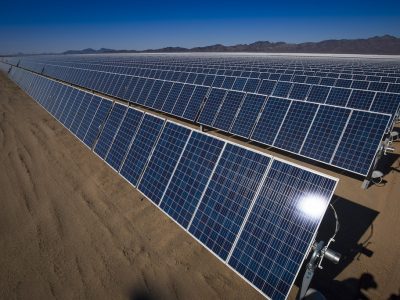Fracking, Methane, and Moving Toward Better Data Through Collaboration

Is using natural gas produced through fracking better for the environment than using coal? The answer is an unqualified maybe . That’s because we don’t have good enough data to know definitively. But a new collaboration between academics, the fracking industry and environmentalists aims to fill the data gap.
First, some background.
The boom in fracking — actually, hydraulic fracturing (injecting liquid into shale rock to release natural gas stored deep underground) — is a well-known one that has completely upended energy markets. Prices for natural gas have plummeted to historic lows, so that for the first time in recent history we are getting more of our electricity from natural gas than coal. The process of fracking has, of course, generated significant environmental controversy because of concerns that the liquids used can contaminate groundwater, the drilling creates air pollution, the process generates significant waste water and so on. But one counter to the environmental concerns has been that from a climate perspective the displacement of coal with natural gas is a good thing. That’s because natural gas combustion to generate electricity produces about half the greenhouse gas emissions as the combustion of coal. Another counter is that natural gas combustion generates significantly fewer air pollutants and air toxins like particulate matter and mercury than the combustion of coal.
But greenhouse gas emissions don’t just occur during the combustion process. Nor do conventional air pollutants. To determine whether reliance on natural gas produced through fracking is less environmentally harmful than the use of coal requires a life-cycle analysis, figuring out all of the pollutants emitted from the releasing of the gas in shale rock to its combustion to produce electricity. One of the biggest concerns about fracking is that it can release methane during drilling and other parts of the process. Methane is a significantly more potent greenhouse gas than carbon dioxide, the principal greenhouse gas released during combustion, so relatively small releases of methane from fracking can quickly turn natural gas derived from shale rock into a dirtier fuel from a climate perspective than coal. And the air pollutants generated from drilling equipment, the use of generators, truck traffic and so forth can exceed coal combustion, though a fair comparative analysis requires subjecting coal combustion to a life cycle analysis as well.
At this point, however, we don’t know have a lot of data about the climate and air pollution generation of fracking using a life cycle analysis. In 2011, Cornell scientists, using data from the Environmental Protection Agency, showed that fracking generates enough methane to make it worse than coal in the amount of greenhouse gases the process generates. But another Cornell scientist raised serious doubts on the original study, concluding that natural gas from fracking is significantly less greenhouse gas intensive than coal. One significant problem has been that scientists are relying on secondary sources for their data rather than having access to conduct their own tests on actual fracking sites. Jonathan earlier lambasted the Economist for failing to provide good information about methane releases from fracking in their issue on natural gas. To be fair, though, good data appear not to be out there.
A new collaboration between scientists, industry and an environmental group is aimed squarely at resolving the controversy. According to EnergyWire, nine oil and gas producers have agreed to give access to their fracking sites to consultants hired by academics from the University of Texas, Austin, with co-sponsorship from the Environmental Defense Fund, to conduct a life cycle analysis of methane and air pollutant emissions from fracking. EDF has previously produced studies showing that the fracking process produces significant air pollution so its involvement in the study suggests that the collaboration is serious about producing solid information to answer the debate. The Texas study is one of a series of studies of large natural gas basins focused on methane releases so by 2013 we should be much closer to understanding the full climate and air pollution impacts of fracking.
The fracking industry has appropriately received harsh criticism for its secretive ways and its unwillingness to disclose information about potential environmental harms from its methods. It’s nice to see that at least for the UT-EDF-industry collaboration they’re behaving differently.
Reader Comments
4 Replies to “Fracking, Methane, and Moving Toward Better Data Through Collaboration”
Comments are closed.







Ann said:
“… Methane is a significantly more potent greenhouse gas than carbon dioxide, the principal greenhouse gas released during combustion, so relatively small releases of methane from fracking can quickly turn natural gas derived from shale rock into a dirtier fuel from a climate perspective than coal….”
Dear Ann,
It may frighten you to know that water vapor is exponentially more potent as a greenhouse gas than carbon dioxide and methane combined. Water absorbs and releases huge amounts of energy in the atmosphere when it changes phase from solid to liquid to vapor (and back).This energy creates global winds, ocean currents, clouds and weather.
Carbon dioxide and methane behave as ideal gases and do not change phases in the earth’s atmosphere, and for this reason their combined contribution to the global greenhouse effect is minuscule and insignificant. Does the California Environmental Bar have any proposals for dealing with catastrophic climate effects associated with atmospheric water? Should we cap & trade water vapor?
Ann said:
“… Methane is a significantly more potent greenhouse gas than carbon dioxide, the principal greenhouse gas released during combustion, so relatively small releases of methane from fracking can quickly turn natural gas derived from shale rock into a dirtier fuel from a climate perspective than coal….”
Dear Ann,
It may frighten you to know that water vapor is exponentially more potent as a greenhouse gas than carbon dioxide and methane combined. Water absorbs and releases huge amounts of energy in the atmosphere when it changes phase from solid to liquid to vapor (and back).This energy creates global winds, ocean currents, clouds and weather.
Carbon dioxide and methane behave as ideal gases and do not change phases in the earth’s atmosphere, and for this reason their combined contribution to the global greenhouse effect is minuscule and insignificant. Does the California Environmental Bar have any proposals for dealing with catastrophic climate effects associated with atmospheric water? Should we cap & trade water vapor?
People die of old age. Does that mean we should stop trying to fight infectious diseases?
People die of old age. Does that mean we should stop trying to fight infectious diseases?